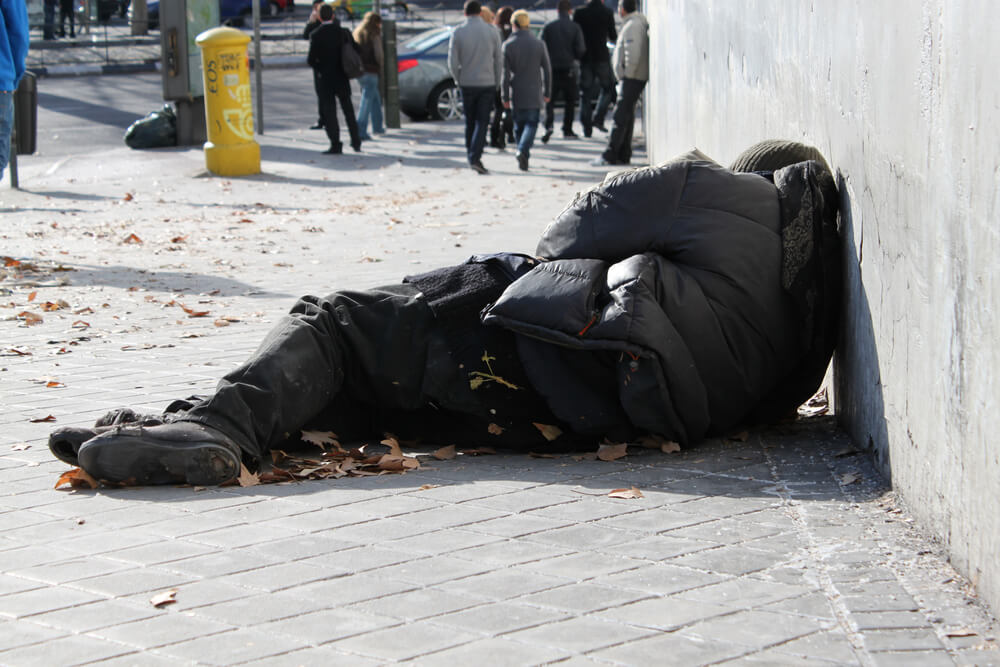The Ontario government recently declared a state of emergency and the federal government invoked the Emergencies Act, now since revoked, to deal with the convoy blockades. Shortly before the Ontario state of emergency was declared, Ontario NDP leader, Andrea Howarth said, “Doug Ford has powers he’s refusing to use, and resources he’s withholding. Meanwhile, people here in Ottawa are living through a nightmare.”
A historic snapshot of homelessness in Toronto reveals the problem has been ignored for decades – and now, it’s getting worse.
On October 8, 1998, the Toronto Disaster Relief Committee called on all levels of government to declare homelessness a national disaster requiring emergency humanitarian relief. At that time, crisis facilities such as shelters were already overcrowded, and like now, people were living in the streets, parks and alleyways, facing risks of violence, and serious mental and physical health problems. In 1996, a Coroner’s Inquest was held into the freezing deaths of three men on the streets in Toronto. Yet by 1998, none of the over 50 recommendations made by the Coroner’s Jury had been implemented.
Fast forward to December 2018. Homeless and housing advocates, health-care workers and shelter providers came together to demand that the City of Toronto declare a state of emergency. It didn’t happen, despite the reported deaths of 101 people who were homeless in 2017, and the reported deaths of 94 more people in 2018.
Recent numbers are unconscionable.
2020 saw 143 deaths of homeless people reported to Toronto Public Health. In the month of January 2022 alone, 741 people stayed in a Toronto shelter for the first time.
Now, this month, already 22 new names have been added to Toronto’s Homeless Memorial, which provides a space to remember each homeless person who dies. Ten of the people lost were Indigenous.
Still, no level of government is calling a state of emergency — not when people could not find a space in homeless shelters during some of the coldest days of this winter. Not when up to 20 per cent of the people in a downtown hospital emergency department last month were there because they were homeless and simply seeking warmth. And not when at least three people who were homeless died from extreme cold — one person in a bus shelter, one person in a ravine and one after being admitted to hospital.
The situation is so dire that a coalition of frontline workers from various health and social service organizations in Ontario took the unprecedented move to send their own urgent request for humanitarian aid to Doctors Without Borders, the United Nations and the Ontario Red Cross.
Why request a state of emergency to address homelessness?
A state of emergency could include an emergency order to establish facilities for the care, welfare, safety and shelter of individuals, including emergency shelters and hospitals. It’s the bare minimum of what we expect from our governments.
Here’s a quick win: modular housing units intended for people without homes are currently sitting empty in a parking lot in Willowdale because the province will not grant a zoning change that would allow the housing on the property, despite support from the local Toronto city councillor.
There are just three critical actions all levels of government need to take immediately to address the housing emergency in Ontario, and specifically in Toronto, where the scale of the emergency is so great. First, fund and incorporate 2,250 permanent, non-congregate shelter beds into the city’s emergency shelter system. Secondly, fund and distribute at least an additional 3,000 new housing allowances this year to people who are homeless in Toronto. Finally, freeze all rental housing evictions across Ontario with the powers of the Emergency Management and Civil Protection Act.
Our governments can’t ignore this emergency any longer.
Photo courtesy of Depositphotos





